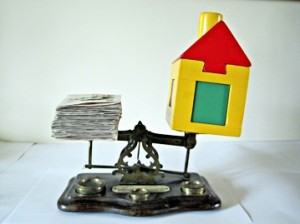 At some point while weighing the pros and cons of buying a new home in town, you begin to mentally fix on a price range. If you are able to depend on a family income that’s fairly predictable, the issue is simplified. If not (small business owners, entrepreneurs, and many sales professionals frequently find themselves in this category), finding an appropriate price range takes careful deliberation.
At some point while weighing the pros and cons of buying a new home in town, you begin to mentally fix on a price range. If you are able to depend on a family income that’s fairly predictable, the issue is simplified. If not (small business owners, entrepreneurs, and many sales professionals frequently find themselves in this category), finding an appropriate price range takes careful deliberation.
Sometimes the issue can be decided for you. In most cases, buying a home will involve a mortgage, so lenders get to weigh in. Since it’s a good idea to seek preapproval from a Sapphire mortgage lender early on, you can let their professional opinion help with the price range.
Let’s say the Martins have been preapproved for a $260,000 home loan. They have $20,000 set aside for a down payment, and are certain to clear another $20,000 once they sell their current home and retire its mortgage (it’s in very good shape in a nice neighborhood, but just too small for their growing family). So it’s good news: they can buy a $300,000 home!
It’s at this point in buying a home that the Martins can also decide to make a decidedly atypical decision. That decision would be to pick a number below their peak eligibility as the top figure in “their” price range, and to shop accordingly. Most folks don’t wind up doing that.
Maxing out your budget and purchasing the most expensive home you can afford is undeniably appealing. The math might tell you that you can afford the monthly mortgage payment, even if buying your new Sapphire home puts you at the top of your price range. It can mean you get the space and features you’ve always dreamed of. However, there are some sound reasons why buying a home at the top of your price range might not be your best choice—
1. Additional Expenses
That mortgage amount alone does not take into account the other expenses and financial obligations that come with being a homeowner. Homeowners’ insurance and neighborhood association fees can add to your regular monthly expense, as will property taxes—a considerable figure. If you are moving to a larger property, any maintenance and utility expenses that you’ve grown accustomed to might be greater. If you plan on buying the most expensive home you can, those extra bills might be budget-busters.
2. Room to Renovate
Even if you’re buying your dream home, chances are very good that you’ll want to make a few changes to the new place. From fresh coats of paint to changes of carpets, appliances, or countertops, changes are a normal phenomenon after buying a home. Even if you’re pleased with the existing aesthetics, you might need additional furniture if the move is into a bigger space. Purchasing at the top of your price range can limit your ability to make needed changes.
3. Emergency Fund Savings
An emergency fund is a stress-relieving must for homeowners. When the refrigerator fails, the furnace needs to be replaced, or a busted pipe floods the bathroom, you’ll be relieved to have the extra cash. Even true do-it-yourselfers need to call for professional help occasionally. When you purchase a more affordable home, you’ll have extra cash to set aside for emergencies.
One of the greatest benefits of buying a home in Sapphire is the sense of stability and security it brings. Working with a group of experienced professionals is the surest way to achieve your home buying goals…as well as a sound reason to give me a call!



